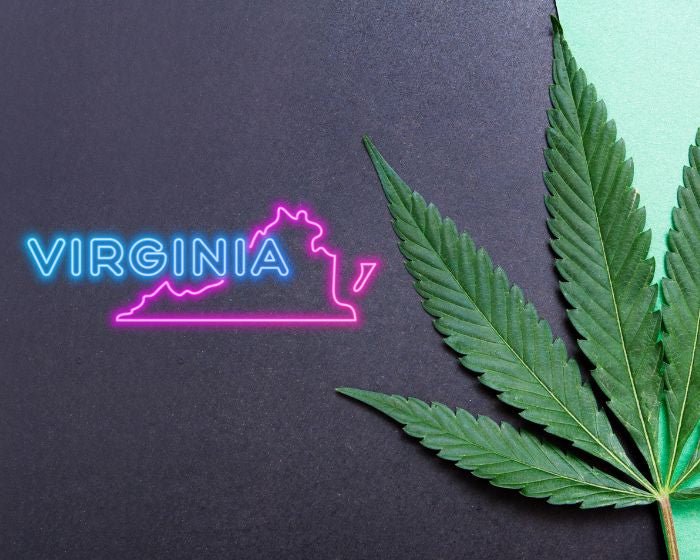The new bill would legalize adult-use cannabis in Minnesota, but it may also do irreparable to harm small business owners.

According to several media outlets, the legislative effort to finally legalize adult-use cannabis in Minnesota is underway, following the approval of State House Bill HF100, along with a series of amendments, by members of the House Commerce Finance and Policy Committee. The bill, authored by Rep. Zack Stephenson (D), who also chairs the committee, is a very similar iteration of a bill sponsored by former Majority Leader Ryan Winkler (D) that passed the full House in 2021.
During the opening of the committee hearing, Stephenson stated, "Minnesotans are ready. Cannabis should not be illegal in Minnesota. Minnesotans deserve the freedom and respect to make responsible decisions about cannabis themselves. Our current laws are doing more harm than good."
"Minnesotans are ready. Cannabis should not be illegal in Minnesota. Minnesotans deserve the freedom and respect to make responsible decisions about cannabis themselves. Our current laws are doing more harm than good."
- MN State Rep. Zack Stephenson (D)
With both chambers of the State House and the Governor's office controlled by the Democratic-Farmer-Labor Party, lawmakers, stakeholders and advocates are confident that all of their efforts to add Minnesota to the roll call of states with legal recreational marijuana will come to fruition this time around.
Sen. Lindsey Port (D), the author of a companion bill to HF100 in the Minnesota State Senate, recently shared that her measure would be receiving committee consideration by lawmakers in that chamber over the next few weeks.
In addition to the work done by Stephenson and Port, Governor Tim Walz (D), a staunch advocate for the end to prohibition, sent out an email blast last week encouraging his supporters to sign a petition backing the reform. He has gone on the record more than once, optimistically predicting that legislation legalizing recreational cannabis in the state would be accomplished by May. Others, like House Speaker Melissa Hortman (D), believe that approval and passage will likely happen sometime next year.
As mentioned earlier, the current bill is very similar to the one that passed the House in 2021. However, there are several fundamental changes in addition to the newly added amendments. Some of these include:
- A new license category for businesses that sell "lower-potency edible products" under Minnesota's amended THC law that was put into effect this past summer.
- A reduction in regulatory requirements for those licenses, allowing on-site consumption provided those companies have a liquor license.
- Establishment of a Cannabis Management Board, responsible for all licensing and oversight of cannabis and cannabinoid products, with minimal local control.
- Creation of a Cannabis Advisory Council responsible for providing recommendations to the Board.
The committee also rejected several proposed amendments that mostly centered on control issues at the local government level. Much of the battle over legalization has centered on local municipalities wanting to decide whether or not cannabis businesses should be allowed in their respective communities. Under the proposed bill, local governments are not allowed to prohibit the possession, transportation, or use of cannabis or cannabis products. Likewise, they are not permitted to ban the establishment or operation of a cannabis business.
However, it would allow local leaders to adopt reasonable time, place, and manner restrictions for new cannabis businesses. Additionally, the measure would require the Board to establish a process for reviewing and responding to complaints by local governments concerning the establishment and operation of marijuana businesses.
For many, HF100 is the right piece of legislation at the exact right time for Minnesotans. As the ACLU of Minnesota shared in written testimony at the committee hearing, "HF 100 is a viable path toward responsibly legalizing marijuana use and possession for Minnesota adults."
"HF 100 is a viable path toward responsibly legalizing marijuana use and possession for Minnesota adults."
- ACLU of Minnesota
However, as with most political battles over the control and direction of a potentially lucrative new and complicated industry, the devil is indeed in the details. As an owner of a small hemp-based business in Minnesota, Steven Brown, owner of Nothing But Hemp, knows all too well that political promises and grand speeches sometimes serve as shiny distracting toys, shifting focus away from what is actually being done to craft laws that impact real human beings.
He recently did his own due diligence concerning HF100. During that process, he found that while the bill may make recreational marijuana legal in Minnesota, it could also serve as a death knell for current small hemp-based businesses, allowing larger, well-funded corporations to swoop in and take over market share and control of the industry.
Despite the rhetoric, some of the more glaring issues that stand out concerning HF100 include the following:
- HF100 repeals the current low-does THC edible law on July 1, 2024.
- Low-dose THC retailers would have to enter every cannabis transaction into a separate software system that does not integrate with the non-cannabis point of sale.
- Low-dose THC retailers can only sell low-dose THC beverages - no edibles.
- HF100 prevents vertical integration, and many hemp licensees are already vertically integrated.
- Hemp manufacturers are required to be licensed cannabis manufacturers under HF100.
Along with these challenging and detrimental issues for low-dose THC retailers, HF100 also creates unnecessary and expensive tax burdens for small hemp-based businesses in Minnesota. Additionally, it creates existential threats for the beverage industry as well.
In a rush to pass legislation over 60% of Minnesotans say they approve of, many lawmakers, lobbyists and corporate entities seem more than willing to use the electorate's fervor to their advantage. Furthermore, they seem more than willing to sacrifice the small to medium-sized hemp-based companies that laid much of the groundwork to create a framework for Minnesota's legal adult-use cannabis industry.
However, the citizens of Minnesota have a proud tradition of doing it the right way. So it is more important than ever to speak up and let the state capital's leaders know that Minnesota wants to have a legal, safe and thriving recreational marijuana industry. But they want one that does not sacrifice the hard-working men and women who comprise the hundreds of small businesses that help make that dream a reality.







































